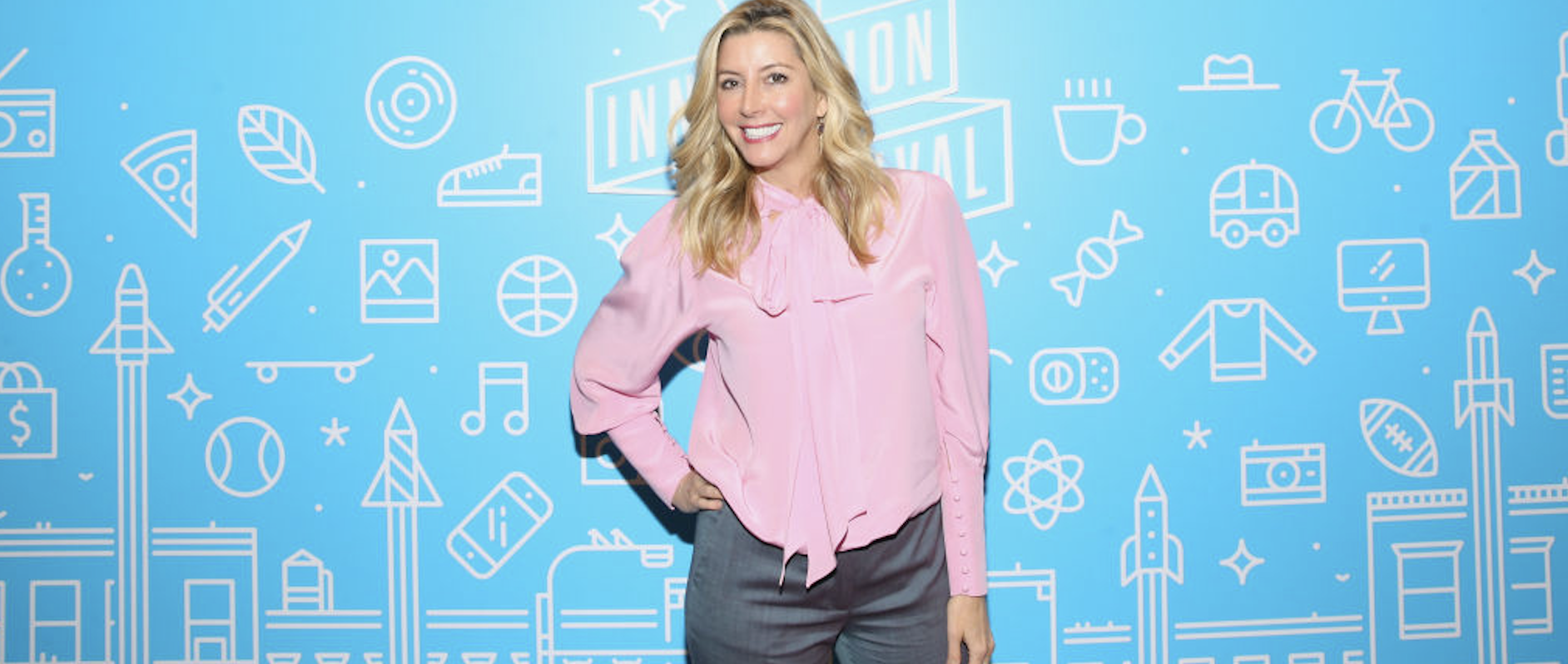If you’re an entrepreneur, you know Sara Blakely. She was in her late 20s when she had the idea for what became Spanx. She kept her full-time job selling office supplies while she bootstrapped the company, working and side-hustling and grinding — and hearing “no” countless times.
But she stayed the course and became the youngest self-made female billionaire in the world.
And learned a lot along the way:
- “Embrace what you don’t know, especially in the beginning, because what you don’t know can become your greatest asset. It ensures that you will absolutely be doing things different from everybody else.”
- “The smartest thing I ever did was to hire my weakness.”
- “I got a call from the ‘Oprah Winfrey Show.’ Oprah had chosen Spanx as one of her favorite products in 2000. I had boxes of product in my apartment and I had two weeks’ notice that she was going to say she loved it on TV and I had no shipping department.”
- “When something I can’t control happens, I ask myself: Where is the hidden gift; where is the positive in this?”
- “When I was a child, my father used to encourage my brother and me to fail. At the dinner table, instead of asking about the best part of our day, he would ask us what we failed at that week. If we didn’t have something to tell him, he would be disappointed. When we shared whatever failure we’d endured, he’d high-five us and say, ‘Way to go!’ The gift my father gave us by doing this was redefining what failure truly meant.”
- “Instead of failure being the outcome, failure became not trying. And it forced me at a young age to want to push myself so much further out of my comfort zone.”
- “Instead of failure being the outcome, failure became not trying. And it forced me at a young age to want to push myself so much further out of my comfort zone.”
- “We don’t have the luxury of time. We spend more because of how we live, but it’s important to be with our family and friends.”
- “I’d never worked in fashion or retail. I just needed an undergarment that didn’t exist.”
- “My advice for an entrepreneur just starting out is to differentiate yourself. Why are you different? What’s important about you? Why does the customer need you?”
- “I think very early on in life we all learn what we’re good at and what we’re not good at, and we stay where it’s safe.”
- “I made a conscious decision not to tell anyone in my life. Now I tell people — don’t tell anyone your idea until you have invested enough of yourself in it that you are not going to turn back. When a person has an idea at that conception moment it is the most vulnerable — one negative comment could knock you off course.”
- “I think my story says that when women are given the chance and the opportunity, that we can achieve a lot. We deliver.”
- “Perseverance is the key to starting a successful business.”
- “I’d get kicked out of buildings all day long; people would rip up my business card in my face. It’s a humbling business to be in. But I knew I could sell and I knew I wanted to sell something I had created. I cut the feet out of those pantyhose and I knew I was on to something. This was it.”
- “The thought of my mortality — I think about it a lot. I find it motivating. It can be any time that your number’s up.”
- “Ideas, even million-dollar ones, are most vulnerable in their infancy; don’t share them with too many people. However, don’t hide your plan from people who can help you move it forward.”
- “Don’t solicit feedback on your product, idea or your business just for validation purposes. You want to tell the people who can help move your idea forward, but if you’re just looking to your friend, co-worker, husband or wife for validation, be careful. It can stop a lot of multimillion-dollar ideas in their tracks in the beginning.”
- “I feel like money makes you more of who you already are.”
- “If somebody can do something 80 percent as good as you think you would have done it yourself, then you’ve got to let it go.”
- “With every obstacle that has happened to me in my life, my brain immediately says, ‘Where is the hidden blessing?’ In starting a business and growing a business, every day is learning how to manage obstacles.”
- “Where I get my energy is: ‘How can I make it better?'”
Originally published at www.inc.com
We’d love to know your thoughts on Thrive stories and Quaker products. Take our quick survey here! [Sponsored]


